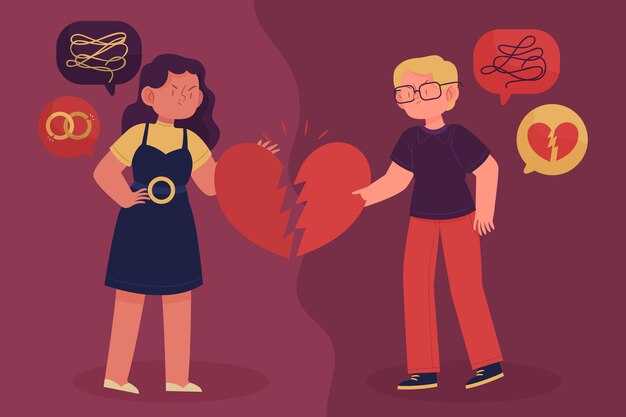It’s common to believe that once a severe traumatic chapter ends, everything should return to normal. The reality is different: after trauma you’re often fragile—not only to manipulative people but also to the deceptive habits your trauma has instilled in you. Recovery is gradual, and sometimes the true weight of past errors only dawns on you later. So what do you do then? Today’s letter comes from a woman I’ll call Gretchen. She writes: Dear Anna — how do I release the shame, fear, and guilt tied to my past mistakes? I’m 32 and recently divorced. I had an affair with a married man, which led to my divorce. My marriage had been failing for years; my husband was emotionally distant and unavailable, and I coped with loneliness and alcoholism. When he found out about the affair he threatened and assaulted me, and I fled. He later moved on with someone else and finally let me go. The man I’d been involved with told me about his own marital problems and depression, and I felt compelled to help. (I have my pen here and I’m circling parts to revisit on a second reading.) We were in a long-distance relationship for a year, shared an intense emotional bond, and he told me we’d be together once he got divorced. It felt like we were soulmates. But over time he pulled away and his actions became hurtful. When he proposed that we “just be friends,” I said no and cut off contact. I tried to move forward, but seeing his posts about his family was painful, so I unfollowed and erased any trace of him. More than a year later his wife contacted me, asking whether we had been intimate. Her message was harsh, so I blocked her, yet waves of guilt and anxiety keep returning. I’m terrified she’ll continue to reach out, and I can’t understand why these feelings won’t leave me. How am I supposed to move on? I don’t know what to do. Thank you for reading. Gretchen, I’m sorry you’re dealing with this. Here’s what I want to offer. You are newly divorced because of an affair with a married man. When your husband learned of it he was abusive, and you escaped—so at least you got out of a dangerous situation. Sometimes people end up in an affair that ultimately pushes them out of a harmful marriage; that’s not uncommon. You say the man you were involved with confided his marital troubles and depression to you, and you wanted to help. You were engaged in an emotionally intense, long-distance connection that lasted about a year, during which he promised to leave his marriage. Some couples do end up together after such promises, but too often it doesn’t work out. One clear boundary to adopt going forward is: don’t get involved with someone who is already committed. Even if he truly planned to follow through, you were aware he was lying to his partner, and you continued the relationship anyway. If you want to be free of ongoing guilt, you need to accept your role in the harm done and choose never to repeat it. Make that a firm boundary: do not enter relationships with people who are attached to someone else—especially someone who is married. Think about the man’s position for a moment: he betrayed his wife, and he betrayed you too. He made choices that hurt others, and if he truly needed out of his marriage he could take that step himself instead of maintaining a secret relationship. Being romantically involved with someone who can’t own their decisions is a huge warning sign—if they won’t be accountable for their actions in one area, they likely won’t be accountable with you either, and that explains why he drifted away. You did the right thing by ending contact. When he suggested being friends, that was an unrealistic expectation for a relationship that had been built on secrecy. Friendship after an affair is often an attempt to avoid full separation, but in situations like this the healthiest course is no contact—and you took that step. It seems he ultimately chose to stay with his family; whether he knew all along or decided later, you were left behind. When his wife reached out to confront you, that placed you in the worst kind of spot. In general, honesty is important, and people deserve truth within their marriages. But you can’t right a wrong by committing another wrong. If he’s lying to her or minimizing what happened, that’s ultimately their problem to resolve. You played a part in the hurt, but it’s not your place to be the one to fix their marriage or to “out” him on your own terms. Two wrongs do not make a right. So what practical steps can you take now to ease your guilt? I don’t advise contacting his wife directly—doing so could cause more harm than good. Instead, prepare an apology directed to her, but keep it private for now. Write a sincere letter acknowledging your actions and their consequences, then put it away in a safe place where no one else will see it. You probably will never actually hand it to her, but composing it helps you clarify exactly what you’re apologizing for and completes an important internal process. A meaningful apology requires real clarity and remorse. You might need help from a therapist, a sponsor, a trusted friend, or a support group to understand what you did and to avoid a hollow or defensive apology. Don’t apologize with excuses like “I only did it because he told me to” or “I thought it was temporary.” That just deepens the harm. Instead, a clean apology focuses on your part without explanation or blame-shifting. Say something like: “I’m truly sorry for what I did. I understand that my actions cost you [trust/security/a future], and I regret causing that. I hope you can forgive me.” Offer nothing by way of justification, and don’t demand forgiveness. If there’s ever an appropriate time to give that letter to her, you’ll know it. And if you never deliver it, the act of writing and truly feeling that contrition will help you move forward. In scenarios where contacting her would only risk further damage or create confusion, staying away is the right choice. Let them manage their relationship. If someday circumstances change dramatically—he is no longer in the picture, for example—then different options might exist, but at present it’s best to remain distant. After you’ve written that private apology and done the emotional work, you should find the guilt lightening. Many people have found that simply preparing the right words, even if they never speak them, brings a sense of completion. Sometimes you’ll run into the person and the apology will come out naturally because you already know what you need to say; other times it will stay tucked away and still do its healing job. If this resonates, please share your experience in the comments. Many in this community have been part of similar triangles—on one side or another—and there’s a clear link between early-life trauma and the patterns that show up in adult romantic relationships. If you suspect unresolved childhood trauma is influencing your relationships now, there’s a list of symptoms I’ve put together that you can check against to better understand what’s happening. You can get that resource here, and I’ll be back soon.
![It’s common to believe that once a severe traumatic chapter ends, everything should return to normal. The reality is different: after trauma you’re often fragile—not only to manipulative people but also to the deceptive habits your trauma has instilled in you. Recovery is gradual, and sometimes the true weight of past errors only dawns on you later. So what do you do then? Today’s letter comes from a woman I’ll call Gretchen. She writes: Dear Anna — how do I release the shame, fear, and guilt tied to my past mistakes? I’m 32 and recently divorced. I had an affair with a married man, which led to my divorce. My marriage had been failing for years; my husband was emotionally distant and unavailable, and I coped with loneliness and alcoholism. When he found out about the affair he threatened and assaulted me, and I fled. He later moved on with someone else and finally let me go. The man I’d been involved with told me about his own marital problems and depression, and I felt compelled to help. (I have my pen here and I’m circling parts to revisit on a second reading.) We were in a long-distance relationship for a year, shared an intense emotional bond, and he told me we’d be together once he got divorced. It felt like we were soulmates. But over time he pulled away and his actions became hurtful. When he proposed that we “just be friends,” I said no and cut off contact. I tried to move forward, but seeing his posts about his family was painful, so I unfollowed and erased any trace of him. More than a year later his wife contacted me, asking whether we had been intimate. Her message was harsh, so I blocked her, yet waves of guilt and anxiety keep returning. I’m terrified she’ll continue to reach out, and I can’t understand why these feelings won’t leave me. How am I supposed to move on? I don’t know what to do. Thank you for reading. Gretchen, I’m sorry you’re dealing with this. Here’s what I want to offer. You are newly divorced because of an affair with a married man. When your husband learned of it he was abusive, and you escaped—so at least you got out of a dangerous situation. Sometimes people end up in an affair that ultimately pushes them out of a harmful marriage; that’s not uncommon. You say the man you were involved with confided his marital troubles and depression to you, and you wanted to help. You were engaged in an emotionally intense, long-distance connection that lasted about a year, during which he promised to leave his marriage. Some couples do end up together after such promises, but too often it doesn’t work out. One clear boundary to adopt going forward is: don’t get involved with someone who is already committed. Even if he truly planned to follow through, you were aware he was lying to his partner, and you continued the relationship anyway. If you want to be free of ongoing guilt, you need to accept your role in the harm done and choose never to repeat it. Make that a firm boundary: do not enter relationships with people who are attached to someone else—especially someone who is married. Think about the man’s position for a moment: he betrayed his wife, and he betrayed you too. He made choices that hurt others, and if he truly needed out of his marriage he could take that step himself instead of maintaining a secret relationship. Being romantically involved with someone who can’t own their decisions is a huge warning sign—if they won't be accountable for their actions in one area, they likely won’t be accountable with you either, and that explains why he drifted away. You did the right thing by ending contact. When he suggested being friends, that was an unrealistic expectation for a relationship that had been built on secrecy. Friendship after an affair is often an attempt to avoid full separation, but in situations like this the healthiest course is no contact—and you took that step. It seems he ultimately chose to stay with his family; whether he knew all along or decided later, you were left behind. When his wife reached out to confront you, that placed you in the worst kind of spot. In general, honesty is important, and people deserve truth within their marriages. But you can’t right a wrong by committing another wrong. If he’s lying to her or minimizing what happened, that’s ultimately their problem to resolve. You played a part in the hurt, but it’s not your place to be the one to fix their marriage or to “out” him on your own terms. Two wrongs do not make a right. So what practical steps can you take now to ease your guilt? I don’t advise contacting his wife directly—doing so could cause more harm than good. Instead, prepare an apology directed to her, but keep it private for now. Write a sincere letter acknowledging your actions and their consequences, then put it away in a safe place where no one else will see it. You probably will never actually hand it to her, but composing it helps you clarify exactly what you’re apologizing for and completes an important internal process. A meaningful apology requires real clarity and remorse. You might need help from a therapist, a sponsor, a trusted friend, or a support group to understand what you did and to avoid a hollow or defensive apology. Don’t apologize with excuses like “I only did it because he told me to” or “I thought it was temporary.” That just deepens the harm. Instead, a clean apology focuses on your part without explanation or blame-shifting. Say something like: “I’m truly sorry for what I did. I understand that my actions cost you [trust/security/a future], and I regret causing that. I hope you can forgive me.” Offer nothing by way of justification, and don’t demand forgiveness. If there’s ever an appropriate time to give that letter to her, you’ll know it. And if you never deliver it, the act of writing and truly feeling that contrition will help you move forward. In scenarios where contacting her would only risk further damage or create confusion, staying away is the right choice. Let them manage their relationship. If someday circumstances change dramatically—he is no longer in the picture, for example—then different options might exist, but at present it’s best to remain distant. After you’ve written that private apology and done the emotional work, you should find the guilt lightening. Many people have found that simply preparing the right words, even if they never speak them, brings a sense of completion. Sometimes you’ll run into the person and the apology will come out naturally because you already know what you need to say; other times it will stay tucked away and still do its healing job. If this resonates, please share your experience in the comments. Many in this community have been part of similar triangles—on one side or another—and there’s a clear link between early-life trauma and the patterns that show up in adult romantic relationships. If you suspect unresolved childhood trauma is influencing your relationships now, there’s a list of symptoms I’ve put together that you can check against to better understand what’s happening. You can get that resource here, and I’ll be back soon.](/wp-content/images/your-affair-is-over-but-the-damage-is-still-there-32nibqxm.jpg)
Additional practical tools and steps to help you heal and reduce shame:

1. Seek trauma-informed therapy and addiction support
Find a therapist who understands both trauma and substance use—modalities such as EMDR, CPT (Cognitive Processing Therapy), or trauma-focused CBT can help process shame and reframe self-blame. If alcohol was part of how you coped, connect with recovery supports (AA, SMART Recovery, outpatient programs or a medical provider) to stabilize substance use—cleaner thinking makes emotional repair possible.
2. Create a safety and contact plan
If you fear further messages from the wife or the man, document any communications, keep evidence in a secure place, and continue to block when necessary. If messages escalate to harassment or threats, consider legal advice or a restraining order in your jurisdiction. Your safety and peace of mind come first.
3. Daily practices to reduce acute shame and anxiety
– Grounding: use the 5-4-3-2-1 sensory exercise to center yourself when guilt spikes.
– Breathwork: slow diaphragmatic breathing for two minutes reduces physiological panic.
– Name the emotion: silently label what you feel (“shame,” “regret,” “fear”)—labelling lowers intensity.
– Short, compassionate phrases: practice self-soothing statements such as “I am responsible for my choices, and I am learning to do better.”
4. Repairing without causing harm
You cannot ethically fix someone else’s marriage for them. The most constructive repair you can do is: accept responsibility privately, change your future behavior, and make amends where they do not cause further damage. That private apology letter is a form of moral repair that doesn’t retraumatize others or reopen conflict.
5. Rebuild trust in yourself
– Define clear relationship values (e.g., honesty, boundaries, no involvement with attached people).
– Start with small promises to yourself and keep them (sleep, sobriety, therapy attendance). Reliability with small acts rebuilds self-trust.
– When dating again, disclose your boundaries early and look for partners who model accountability.
6. Manage social media and triggers
Maintain blocks and unfollows. Consider a temporary social media break. If you must be aware of the other parties for safety reasons, limit exposure to specific times and use neutral settings to reduce emotional reactivity.
7. Use structured journaling prompts
– What specifically did I do, and what harm did it cause?
– What would I do differently next time?
– What steps will show up for others (and for myself) as genuine change?
Writing focused answers reduces rumination and clarifies concrete actions.
8. Connect to community
Isolation deepens shame. Trusted friends, support groups, faith leaders, or sponsors can provide perspective and accountability without judgment. Consider group therapy or peer recovery groups where you can safely tell your story and hear others’ experiences.
9. Plan for potential contact from the wife
Decide in advance what you will do if she reaches out: a brief, non-defensive written response that acknowledges your role and states that you will not engage further is often safest. Example: “I accept responsibility for my actions and am working on healing. I will not engage further.” Keep it short; avoid arguments or justifications.
10. Know when to seek immediate help
If your shame or guilt becomes paralyzing, leads to thoughts of self-harm, or you feel unable to keep yourself safe, seek urgent support: contact local emergency services, a crisis hotline, or go to the nearest emergency room. Reaching out is a sign of strength, not weakness.
Finally, be patient with yourself. Guilt and shame are heavy emotions with a purpose: they call attention to harm and invite repair. The healthiest outcome is not to erase the past but to learn from it, to make restitution where possible without creating new harm, and to live differently going forward. Over time, with consistent boundaries, honest work in therapy, support for addiction recovery if needed, and daily self-compassion, the weight of those emotions will lessen and make room for self-respect and healthier relationships.


 Your Affair is Over But The Damage Is Still There">
Your Affair is Over But The Damage Is Still There">

 Η Ερωτική Παράκρουση Είναι Τοξική Διόρθωση για μια Μοναχική, Άχαρη Ζωή (Συλλογή 4 Βίντεο)">
Η Ερωτική Παράκρουση Είναι Τοξική Διόρθωση για μια Μοναχική, Άχαρη Ζωή (Συλλογή 4 Βίντεο)">
 FWB & Attachment Styles: Η Απροσδόκητη Σύνδεση">
FWB & Attachment Styles: Η Απροσδόκητη Σύνδεση">
 Αναγνώριση και Αποφυγή Τοξικών Φιλιών (Συλλογή 4 Βίντεο)">
Αναγνώριση και Αποφυγή Τοξικών Φιλιών (Συλλογή 4 Βίντεο)">
 ΔΕΝ ΥΠΕΡΒΑΛΛΕΙΣ — ΑΥΤΟΣ ΕΙΝΑΙ ΑΚΡΙΒΩΣ Ο ΤΡΟΠΟΣ ΠΟΥ ΣΕ ΦΙΜΩΝΟΥΝ">
ΔΕΝ ΥΠΕΡΒΑΛΛΕΙΣ — ΑΥΤΟΣ ΕΙΝΑΙ ΑΚΡΙΒΩΣ Ο ΤΡΟΠΟΣ ΠΟΥ ΣΕ ΦΙΜΩΝΟΥΝ">
 ">
">
 10 Emotional Regulation Strategies for Everyday Life">
10 Emotional Regulation Strategies for Everyday Life">
 Is your Wife Addicted to Plants?">
Is your Wife Addicted to Plants?">
 Only the default parent will understand.">
Only the default parent will understand.">
 7 Habits That Easily Re-Ignited Her Arousal">
7 Habits That Easily Re-Ignited Her Arousal">
 Should I break up with him?">
Should I break up with him?">